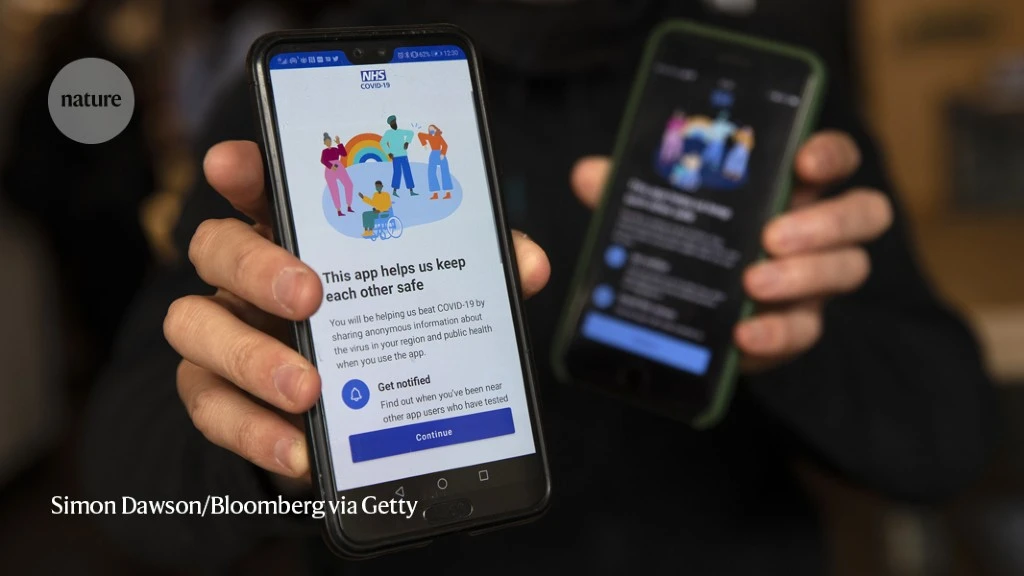
Unfortunantly this kind of data will be misused. I remember there was a big push from my governemnt to use contact tracing apps. Only to find out later that police were using it in investigations.

Got a source for that? The approach google and Apple implemented was completely anonymous, even with rolling identifiers.

It was not the Google/Apple implementation. They were government funded apps which used a centralised db.
https://thewest.com.au/politics/law-and-order/wa-police-accessed-contact-tracing-data-c-3118717

Ah, figures. Thanks! I had the assumption that most, if not all countries used the google/Apple tech, since my own country did just that, as well as the neighbouring countries here.

This is about decentralized, privacy-preserving contact-tracing apps, though.
Centralized apps are definitely a problem.

What government/country was this, out of curiosity? I thought the whole point of the local-storage-only approach was protecting privacy, so curious how it could be used in investigations.

Australia. Government funded apps, not the Google/iOS implementation. It’s been a few years so I was a bit confused on the details. It is not stored locally which is how it was used.

Do you have a link talking about that? I didn’t hear about it. If you use the iPhone or Android built in solutions it wasn’t possible to track users with them. Was it other apps that were giving your data away?

Australia. It was not the built in solution, but a government made one (SafeWA)

wow. what a farce. absolutely ridiculous. this is why people don’t trust governments.
The article mentions a centralized system in Singapore, TraceTogether: https://www.bbc.com/news/world-asia-55541001

well, that’s the centralised implementation, which i also don’t like. iirc there’s a decentralised implementation where, instead of tracking your location and sending it to a central server, each device would have a uuid. whenever you come near someone, both of your devices would just swap uuids and take note of them, and if either of you catches covid, they can just open that list of collected uuids and use that to notify the people who came into contact with them. imo not only is this more privacy-friendly, but it saves infrastructure costs from not having to host centralised servers.

These estimated that, in just three months, the app prevented 284,000 or 594,000 cases, respectively — despite only 28% of the population in those regions using it. The study also suggested that for every 1% increment in app usage, the number of cases could be reduced by 0.8% and 2.3%, respectively.
The most compelling evidence yet, however, comes from an analysis published earlier this year of the usage and impact of the NHS COVID-19 app in its first year of deployment10. It found that the app prevented around one million infections and saved more than 9,600 lives in England and Wales between September 2020 and September 2021. And it achieved this even though, on average over the year, only around 25% of the population was using it (see ‘What the data say’).
Honestly, I did think the contact exposure apps were a failure. I almost never got notifications, despite leaving them always on, and legitimately it sounds like adoption was low. But it sounds like they were still having a noticeable effect.

I worked on the NHS Contact Tracing app. One of the worries was, if the alerts were too frequent, people would ignore them. There was a delicate balance between relevant notifications and “alert fatigue”.

Damn I’d love to have been a fly on that particular wall when the pandemic was happening, what was going on with the first app for example? I remember the government pushing ahead with it even though Apple didn’t permit bluetooth to be used in the way they wanted before admitting defeat and using the native mechanism for it anyway.

Imagine how well it would have worked if more people used it.
To everyone in this thread harping on potential privacy issues: how about the very real reality of several million dead people? Literal decimation of the population of the planet (by the original definition of the word). Should we just say “fuck them” because of some possible boogeyman?

I thought the same thing. I kept mine on and literally did not get a single notice. I’m glad that it seems to have helped some though.

Don’t worry. Republican led state legislatures have been striking down mask, shutdown, and social distancing laws, with little fanfare since we’re out of the pandemic. But when the next one hits, it’s going to be so much worse with the work they’re doing now.

Somehow much worse than learning nothing.

In a study in Australia it was found to have been almost useless in preventing infections while being heavily used by police to invade privacy.

I refused to use it and blocked it on my devices. I have zero trust in my government (France) when it comes to data. It’s both too incompetent and too prone to authoritarism to be trusted with anything like that.
I’m in Belgium. I kept mine faithfully on, because I wanted to be able to somewhat warn people I might have infected them (in the end, I never actually got covid, at least not with symptoms). After our next elections, however, I would need to make sure my privacy is respected. The polls are not looking good.
The article’s call for a decentralized, open-sourced system handled by an organization of specialists is pretty much what I would hope for.

Here at home we refused to install it, we dont trust our goverment and seems like a control and surveillance app.
At the time of COVID they thretened to make the app mandatory for everyone. People started to complain and our lovely prime-minister (portugal) shown its true colors by having an semi-dictatorial atitude, like “I am the one in charge and you do what I say”.
People sem to forget it and still vote for him…


